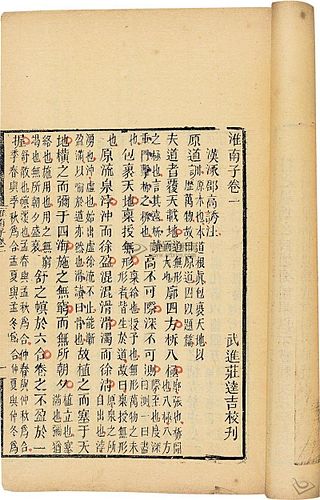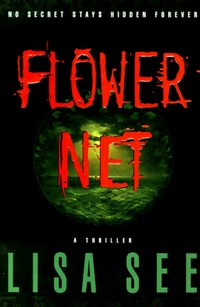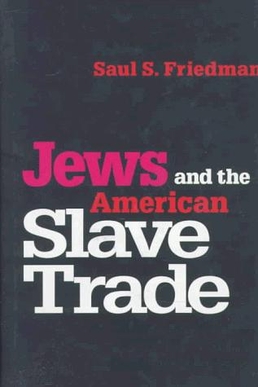
Manhattan's Chinatown is a neighborhood in Lower Manhattan, New York City, bordering the Lower East Side to its east, Little Italy to its north, Civic Center to its south, and Tribeca to its west. With an estimated population of 90,000 to 100,000 people, Chinatown is home to the highest concentration of Chinese people in the Western Hemisphere. Manhattan's Chinatown is also one of the oldest Chinese ethnic enclaves. The Manhattan Chinatown is one of nine Chinatown neighborhoods in New York City, as well as one of twelve in the New York metropolitan area, which contains the largest ethnic Chinese population outside of Asia, comprising an estimated 893,697 uniracial individuals as of 2017.

A tong is a type of organization found among Chinese immigrants predominantly living in the United States, with smaller numbers in Canada, Australia, and the United Kingdom. In Chinese, the word tong means "hall" or "gathering place". These organizations are described as secret societies or sworn brotherhoods and are often tied to criminal activity. In the 1990s, in most American Chinatowns, clearly marked tong halls could easily be found, many of which have had affiliations with Chinese organized crime.

The Records of the Three Kingdoms, is a Chinese imperial history that covers the end of the Han dynasty and the following Three Kingdoms period (220–280 CE). It is widely regarded as the official and authoritative source text for these periods. Written by Chen Shou after the Jin dynasty reunited China in the third century, the work compiles the political, social, and military events within rival states Cao Wei, Shu Han and Eastern Wu into a single text organized by individual biography.

Cantonese is a language within the Chinese (Sinitic) branch of the Sino-Tibetan languages originating from the city of Guangzhou and its surrounding Pearl River Delta. It is the traditional prestige variety of the Yue Chinese group, which has over 82.4 million native speakers. While the term Cantonese specifically refers to the prestige variety, it is often used to refer to the entire Yue subgroup of Chinese, including related but partially mutually intelligible varieties like Taishanese.

The Book of Han is a history of China finished in 111 CE, covering the Western, or Former Han dynasty from the first emperor in 206 BCE to the fall of Wang Mang in 23 CE. The work was composed by Ban Gu, an Eastern Han court official, with the help of his sister Ban Zhao, continuing the work of their father, Ban Biao. They modelled their work on the Records of the Grand Historian, a cross-dynastic general history, but theirs was the first in this annals-biography form to cover a single dynasty. It is the best source, sometimes the only one, for many topics such as literature in this period. The Book of Han is also called the History of the Former Han to distinguish it from the Book of the Later Han which covers the Eastern Han period from 25 to 220 CE, and was composed in the fifth century by Fan Ye.

The Museum of Chinese in America is a museum in New York City which exhibits Chinese American history. It is a nonprofit 501(c)(3) education and cultural institution that presents the living history, heritage, culture, and diverse experiences of Chinese Americans through exhibitions, educational services and public programs. Much of its collection was damaged or destroyed in a fire in January 2020. After being closed for more than a year following the fire, the museum reopened to the public on July 15, 2021.
The Book of Wei, also known by its Chinese name as the Wei Shu, is a classic Chinese historical text compiled by Wei Shou from 551 to 554, and is an important text describing the history of the Northern Wei and Eastern Wei from 386 to 550. Widely regarded as the official and authoritative source historical text for that period, it is one of the Twenty-Four Histories.

Eric P. Liu is an American writer, former civil servant, and founder of Citizen University, a non-profit organization promoting civics education and awareness. Liu served as Deputy Assistant to President Clinton for Domestic Policy at the White House between 1999 and 2000. He served as Speechwriter and Director of Legislative Affairs for the National Security Council at the White House from 1993 to 1994. President Obama nominated him in January 2015 to serve on the board of directors of the federal Corporation for National and Community Service and he was confirmed by the U.S. Senate; his term expired in December 2017.

The Huainanzi is an ancient Chinese text that consists of a collection of essays that resulted from a series of scholarly debates held at the court of Liu An, Prince of Huainan, sometime before 139 BC. The Huainanzi blends Daoist, Confucianist, and Legalist concepts, including theories such as yin and yang and Wu Xing theories.

Little Fuzhou is a neighborhood in the Two Bridges and Lower East Side areas of the borough of Manhattan in New York City, United States. Little Fuzhou constitutes a portion of the greater Manhattan Chinatown, home to the highest concentration of Chinese people in the Western Hemisphere. Manhattan's Chinatown is also one of the oldest Chinese ethnic enclaves.

Flower Net (1997) by Lisa See is the first of the Red Princess mysteries. The other two novels in the series are The Interior (1999) and Dragon Bones (2003). Flower Net explores the state of US-China relations in the early months of 1997, especially in terms of international politics, human trafficking, and the smuggling of illegal goods such as bear bile, and nuclear trigger devices. It also focuses on human relationships – especially those between father and son, father and daughter. Pam Spencer suggests that the title refers to "the flower net used by Chinese fishermen who throw the mesh wide to trap everything within its reach".

Pacific Affairs (PA) is a Canadian peer-reviewed scholarly journal that publishes academic research on contemporary political, economic, and social issues in Asia and the Pacific. The journal was founded in 1926 as the newsletter for the entirety of the Institute of Pacific Relations (IPR). In May 1928, PA adopted its current name, and has been published continuously since. From 1934 to 1942, the journal was edited by Owen Lattimore, then William L. Holland.
Chinese American literature is the body of literature produced in the United States by writers of Chinese descent. The genre began in the 19th century and flowered in the 20th with such authors as Sui Sin Far, Frank Chin, Maxine Hong Kingston, and Amy Tan.

East Broadway is a two-way east–west street in the Chinatown, Two Bridges, and Lower East Side neighborhoods of the New York City borough of Manhattan in the U.S. state of New York.

The New York metropolitan area is home to the largest and most prominent ethnic Chinese population outside of Asia, hosting Chinese populations representing all 34 provincial-level administrative units of China. The Chinese American population of the New York City metropolitan area was an estimated 893,697 as of 2017, constituting the largest and most prominent metropolitan Asian national diaspora outside Asia. New York City itself contains by far the highest ethnic Chinese population of any individual city outside Asia, estimated at 628,763 as of 2017.

Historically there has been a population of Chinese Americans in Los Angeles and the Los Angeles Metropolitan Area. As of 2010, there were 393,488 Chinese Americans in Los Angeles County, 4.0% of the county's population, and 66,782 Chinese Americans in the city of Los Angeles.
The Chinese in Latin America and the Caribbean is a 2010 book edited by Walton Look Lai and Tan Chee-Beng and published by Brill.
John Kuo Wei Tchen, also known as Jack, is a historian of Chinese American history and the Inaugural Clement A. Price Chair in Public History and Humanities at Rutgers University.

Jews and the American Slave Trade is a 1998 book by American historian Saul S. Friedman published by the Transaction Publishers. It focuses on the Jewish involvement in the American slave trade and is a polemical rebuttal against the 1991 work The Secret Relationship Between Blacks and Jews. It has also been described as contributing to the contemporary debates related to African American–Jewish relations.
Liu Kwang-ching, who sometimes published under the name K.C. Liu, was a Chinese-born American historian of China. He taught at University of California-Davis from 1963 until his retirement in 1993. He is best known for his scholarship in late-Qing history, astute bibliographical work, and edited volumes, including co-editing Cambridge History of China volumes.















